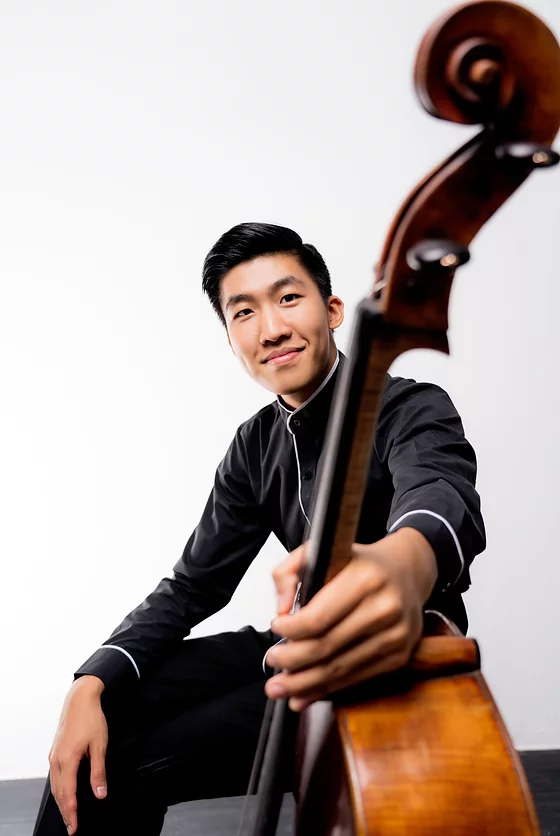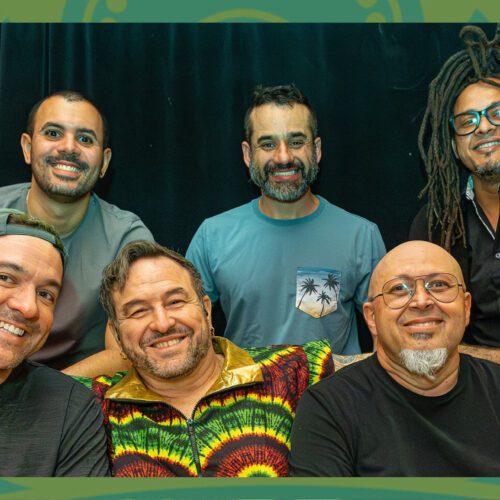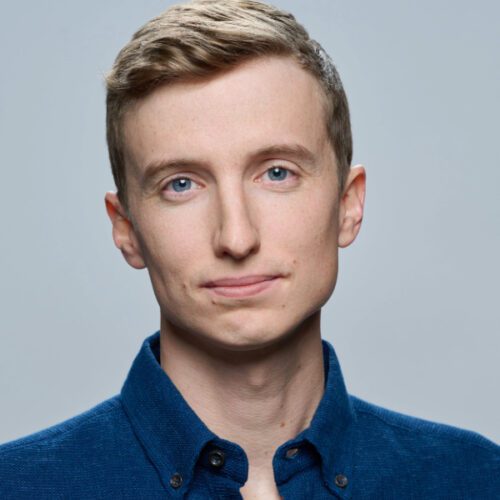Additional Information
2019 OSM Competition winner Bryan Cheng and OSM Concertmaster Andrew Wan team up for an unusual program: a dialogue between the violin and the cello, complete with the pièce de résistance, Ravel’s Sonata, written in 1921 in homage to Claude Debussy and exuding an abundance of lyricism and virtuosity. Leading up to it, audiences will be regaled with their discovery of music by Rebecca Clarke and by works for solo cello by Mark O’Connor and Mark Summer, the latter exploiting the instrument’s potential in an entirely original way!
PAN M 360: For this violin-cello dialogue, how was Bryan Cheng chosen?
ANDREW WAN: I was mentioned, you know, a few different proposals of musicians that I could work with. And when he mentioned the possibility of working with Bryan Cheng, I jumped at the chance, because I really like the way Bryan plays. Ravel’s Sonata is a piece I’ve played quite often. And I know he’s played it too. And he’s a great cellist. So for me it was an obvious choice. And then the rest of the program fell into place quite easily. I had never played Rebecca Clarke’s piece and Philip Glass’ piece, so I was happy to learn them. But the most important thing is to find people that I like to play with and you know, I first heard of Bryan when he did a solo with the MSO. And that was outstanding. And I just realized that I wanted to play with someone like him, so generous and genuine, a great Canadian cellist. And, on top of that, he seems to be a very good person. So I am very excited about that !
PAN M 360: Let’s talk about the main piece, which is Maurice Ravel’s Sonata for Violin and Cello in A minor, M. 73.
ANDREW WAN: Before the period of Debussy and Ravel, French composers were trying to sound very Germanic. And then they started to develop distinct identities by drawing on music from everywhere, from Asia, North Africa and of course America. So they didn’t necessarily want to sound, quote, French. So this duet piece is actually, the more I think about it, similar to Ravel’s piano trio in terms of scope. And what amazes me is that the composer was able to create so much tension and virtuosity, but with only two instruments. So every time I play this piece, I am amazed at my own sense of being with a much larger ensemble. I know, by the way, that it is extremely difficult for the cello, even more so than for the violin, but the result is still very delicate to achieve.
PAN M 360: So we have three duet pieces and two solo pieces for cello on the program.
ANDREW WAN: Yes, the program works that way. Besides the fact that Bryan is the guest and we have to hear him in two solo pieces, I also had to prepare a huge amount of scores for the Classical Spree, not to mention the other festivals I’ll be attending after the Spree. It’s crazy! These are the Olympics! So I keep practicing with my iPad, I can’t even tell how much time I spent. You think you’ve tackled the stack of scores correctly and there’s more and more. And I also want to enjoy Bryan’s playing without the stress of playing the whole concert with him. And, you know, I haven’t played a single note with him before. So I don’t want to rush into anything. Like Ravel, the more you dig, the more it pays off. Just a kind of exciting, not very thoughtful interpretation doesn’t seem to me to be for the kind of player that Bryan is. That’s why I want to dig deep into this piece with him. So I’m thankful that we’re not going crazy and trying to chose too many pieces.
AT THEATRE MAISONNEUVE, SATURDAY, AUGUST 13, 2022 – 1:30 P.M.
ARTISTS AND PROGRAMME
Bryan Cheng, cello
Andrew Wan, violin
Glass, Duets for Violin and Cello, from the Double Concerto (5 min)
Rebecca Clarke, Two Pieces for Violin and Cello (6 min)
Mark O’Connor, Appalachia Waltz, for solo cello (4 min)
Mark Summer, Julie-O, for solo cello (5 min)
Ravel, Sonata for Violin and Cello in A minor, M. 73 (20 min)
























